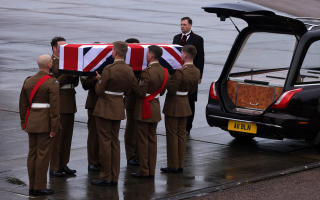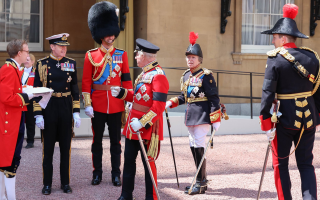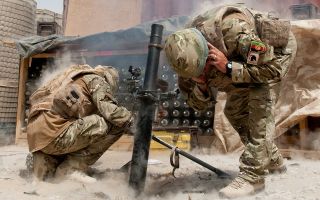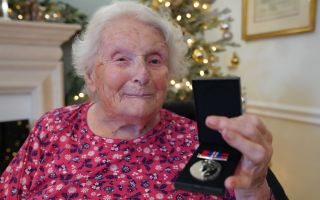World Menopause Day: Personnel share experiences to try and raise awareness
A critical care nurse from 212 Field Hospital is joining other female serving personnel in talking about her journey into menopause and the day-to-day changes – in order to help others experiencing the same life-changing symptoms.
After five years of not asking for support, reservist Major Christine Duffy is sharing her own experiences to encourage other women serving in the Armed Forces to ask for help.
World Menopause Day is held annually on 18 October to increase awareness and break the stigma surrounding a key moment of change in every woman's life when her periods stop – typically in their 40s or 50s.
Common physical symptoms of menopause and perimenopause (the transition period into menopause) affecting more than 75% of women include hot flushes, low self-esteem, heart palpitations, tiredness, trouble concentrating and difficulty remembering.
Major Duffy spoke to Forces News while she and her fellow reservists from 212 Field Hospital were being put through their paces on Exercise Steel Warrior.
In between the medical battlefield scenarios, the main topic of conversation might be unusual, given the circumstances, but it's no less important – the menopause and how crucial it is to ask for help.
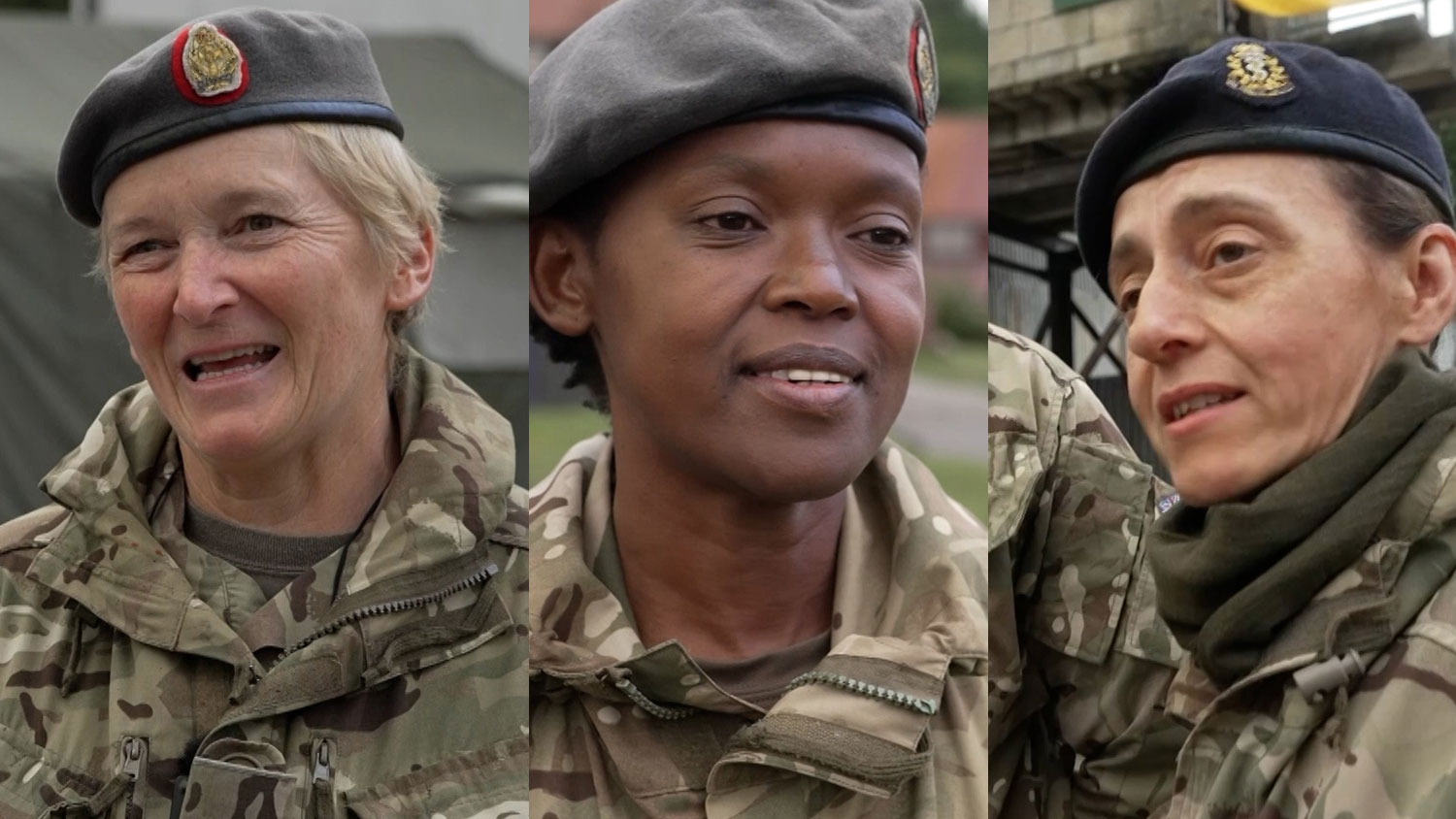
Major Christine Duffy kept her own menopause a secret in her military and civilian life for five years. Eventually, she decided enough was enough and got the crucial support she needed.
The critical care nurse found that her ability to perform at her usual high standard was being affected by her menopause symptoms and it was a realisation she wasn't comfortable with.
She had "mainly the physical symptoms that every, not every woman, most women tend to go through".
"The hot sweats at night, which means you don't sleep well and you're tired the following day, and then you get to work, brain fog, can't think straight."
She added: "That took a toll on me and for a time I felt that I wasn't able to perform as well as I could or deliver the results that I could deliver."
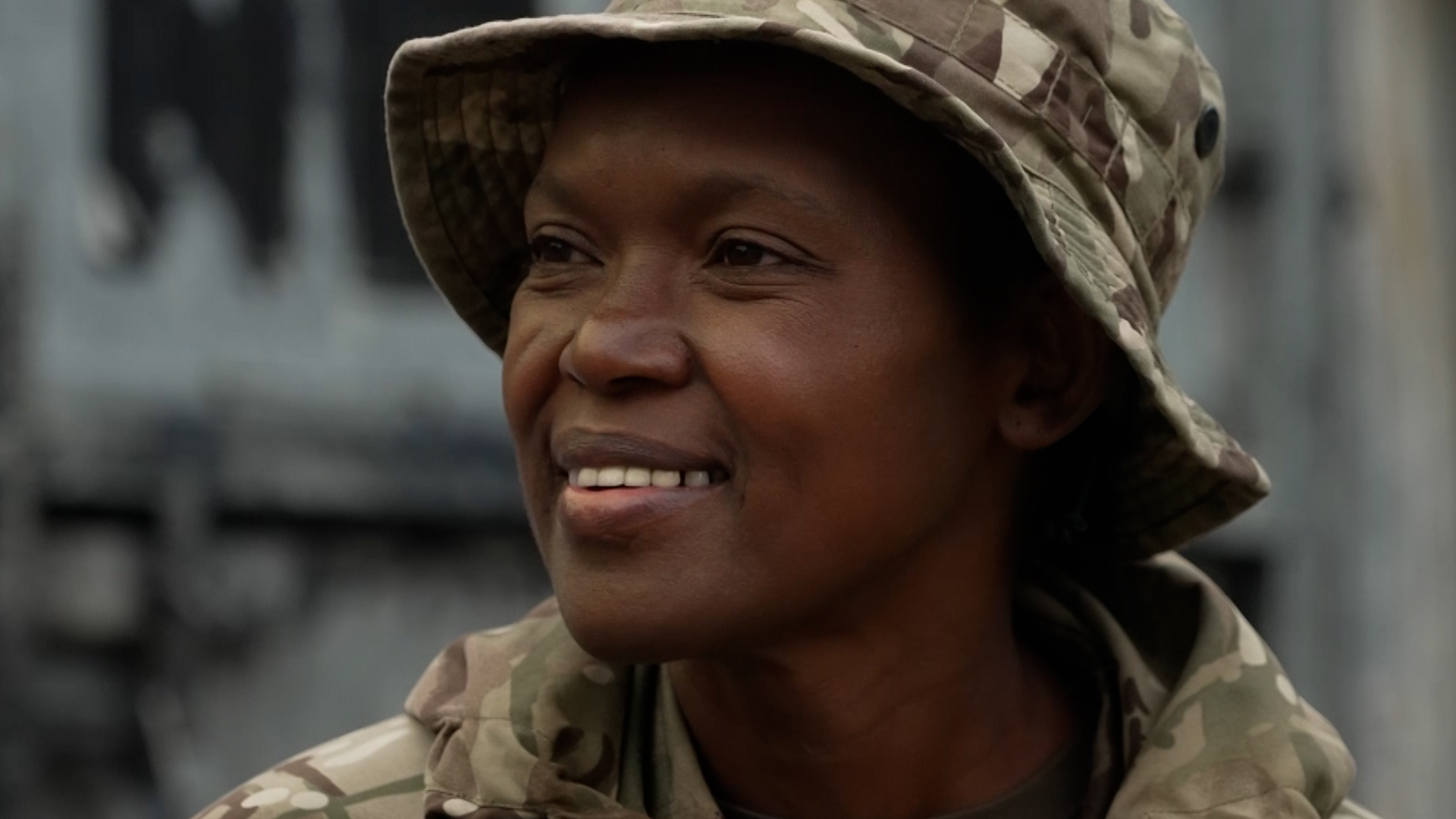
Maj Duffy wants to encourage others to come forward and ask for help.
In a British Menopause Society national survey in 2016, 45% of the women surveyed said their menopause symptoms had a negative impact on their work while 47% of those who needed to take a day off work due to their symptoms felt the need to keep the cause a secret from their employer.
Captain Daniel Storey, 212 Field Hospital's Unit Health Promotion Officer, is keen to encourage service personnel, whatever their gender, to be made aware of the symptoms of menopause and make it something everyone feels comfortable talking about.
He said: "The awareness is a really key point and, I think, traditionally men have buried their head in the sand a little bit on a topic like menopause and, I think, that's when it becomes really important to just grow awareness of it and just normalise the conversations."
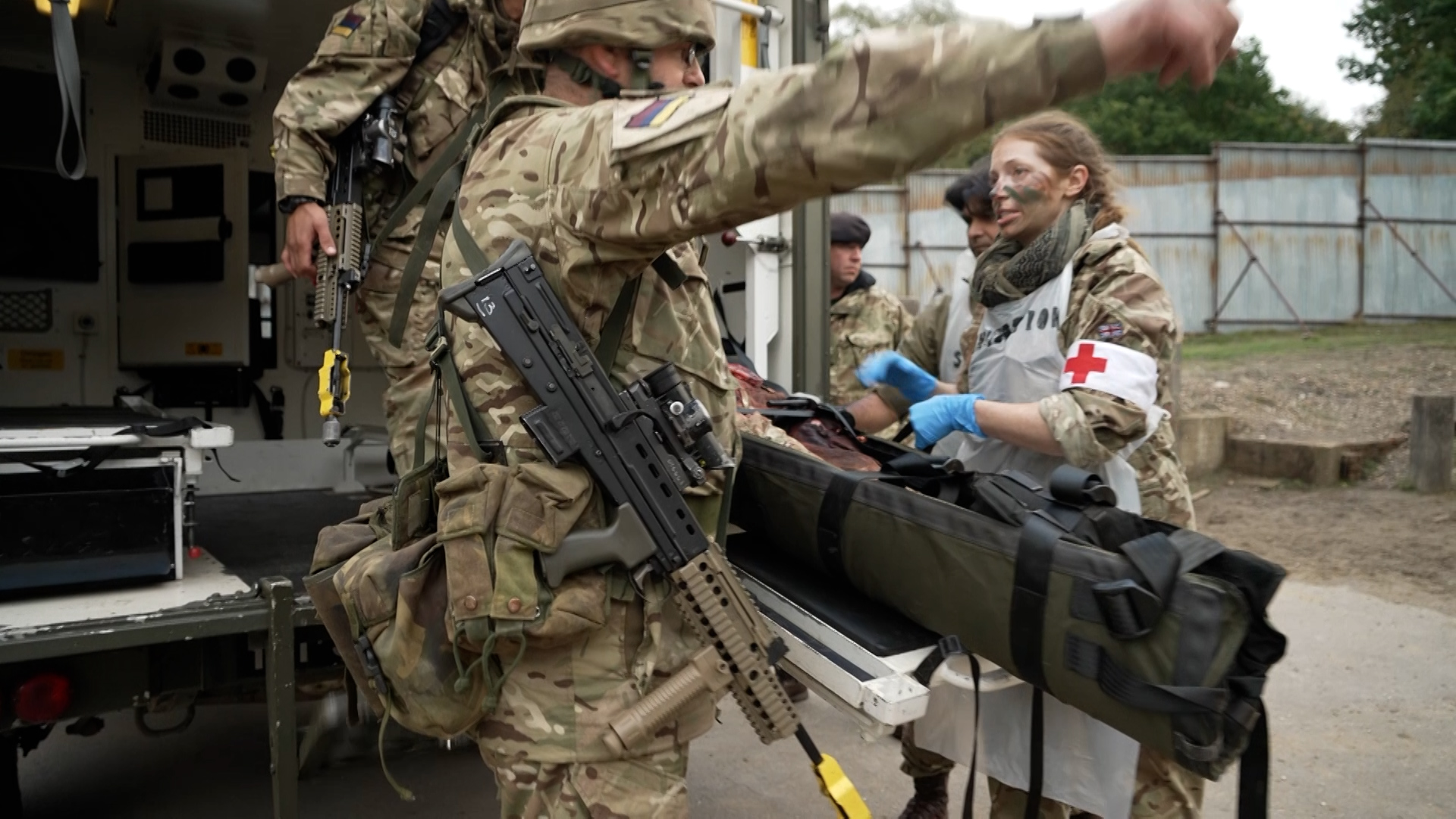
There has been a shift within the Ministry of Defence (MOD) over the decades which has seen women's health and careers increasingly supported and celebrated.
Before August 1990, servicewomen were forced to leave the Armed Forces if they became pregnant. Today, female service personnel are entitled to 26 weeks of ordinary maternity leave and 26 weeks of additional maternity leave.
Major Ruth Tupper, Unit Medical Officer, 212 Field Hospital, is encouraged at the progress made by the MOD.
She said: "I think defence has got really good over the last decade about supporting women through pregnancy and it's supporting them now through the menopause.
"And helping women to actually understand what is happening and how it can impact on how they function and there is treatment out there."
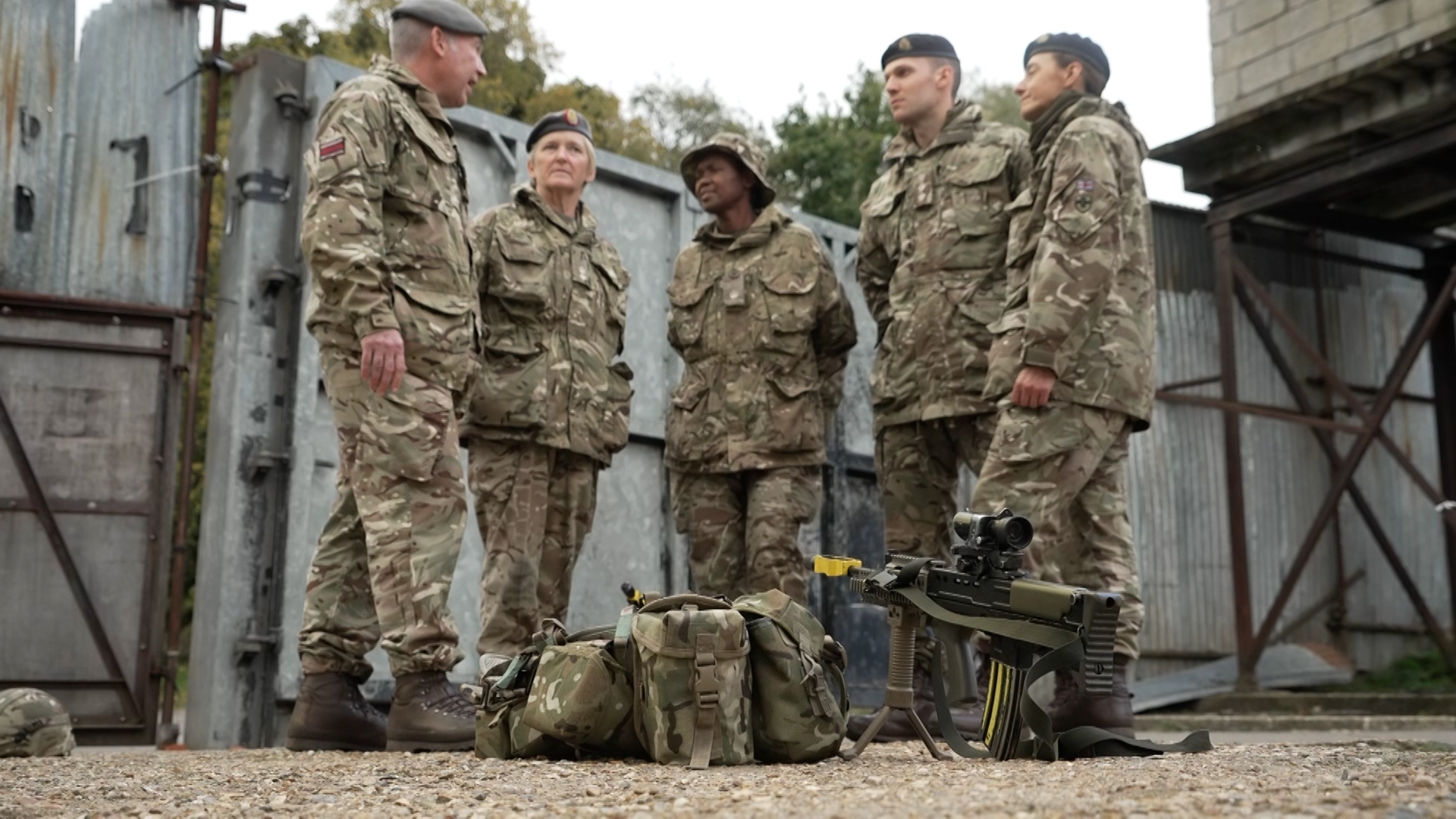
Lieutenant Colonel Lindsay Baigent, Senior Nursing Officer, 212 Field Hospital, also never spoke openly about her experience of menopause.
Many women worry that revealing they are going through menopause might highlight them as being weak or less able than their male counterparts – something a soldier never wants to feel.
Lt Col Baigent said: "You don't want it to be seen as an excuse or a weakness because we're soldiers... first and we want to be strong and we don't want to have light duties.
"We want to be able to do what everybody else is doing even as we get older.
"But you need to be able to put your hand up and say, actually, I'm just going to get a bit of help with this because it is affecting my ability," she added.
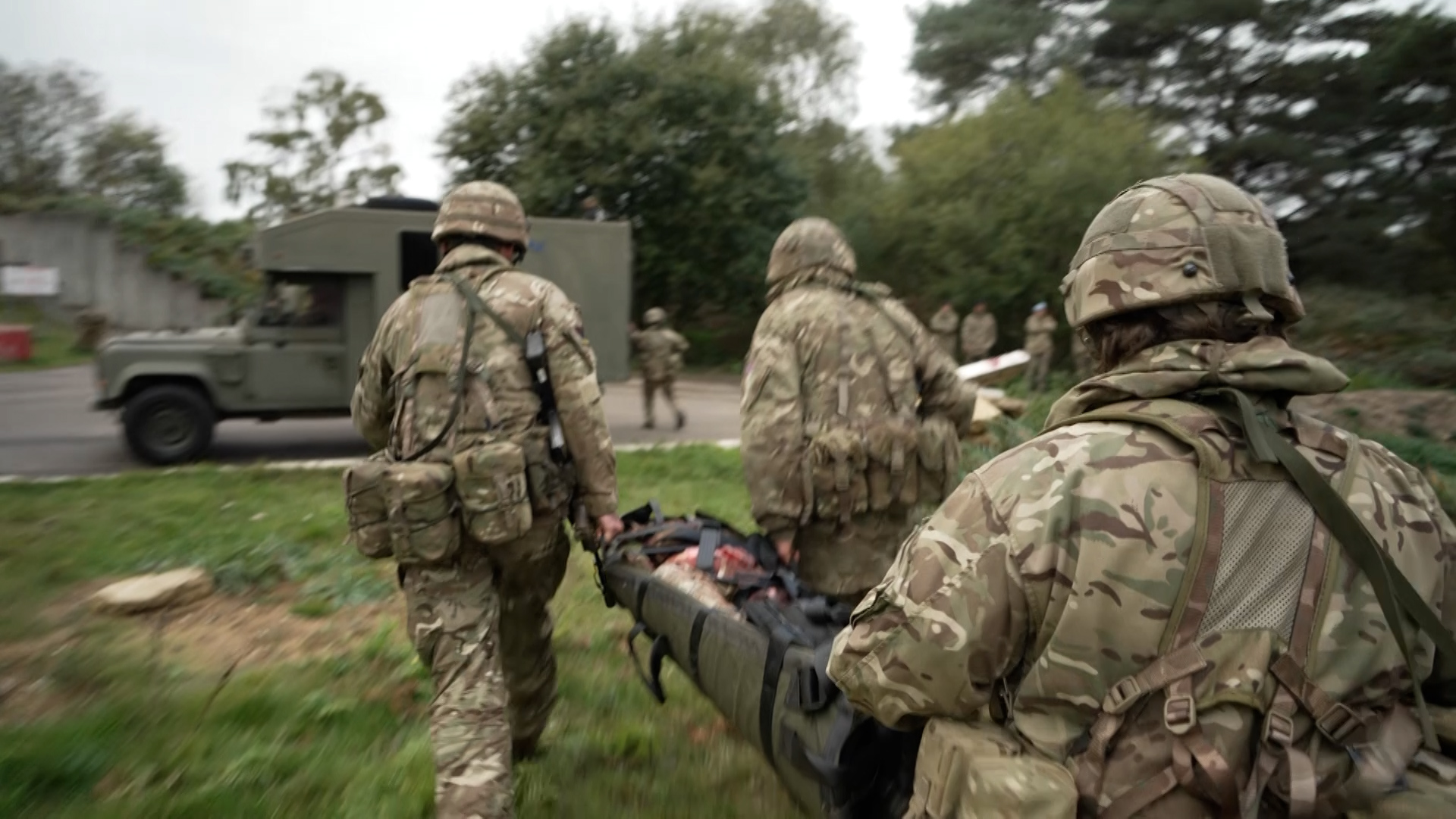
For peak operational effectiveness, all service personnel need to take care of their health and be made aware of the help available to them.
Colonel Paul Jackson, Commanding Officer, 212 Field Hospital, wants people to work in an environment where they feel comfortable to openly talk about how they feel, both mentally and physically.
"We do it with many other conditions and we don't seem to have an issue with it," he said.
"So, the more we can normalise the menopause and make people aware of it, the more people are likely to come forward and be honest and open with their symptoms and if they need any assistance."
It's open and honest conversations like these that all involved hope will lead to an increase in confidence among female soldiers to talk about what they're experiencing.


